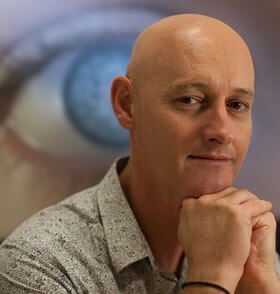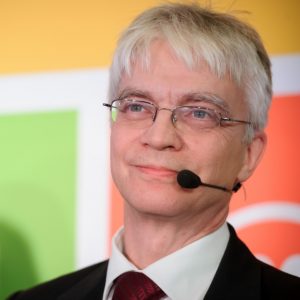 Prof Nigel Lovell
Prof Nigel Lovell
Graduate School of Biomedical Engineering
University of New South Wales
UNSW Sydney NSW 2052 Australia
Web: https://research.unsw.edu.au/people/scientia-professor-nigel-lovell
Nigel Lovell received the B.E. (Hons) and Ph.D. degrees from the University of New South Wales (UNSW), Sydney, Australia. He is currently at the Graduate School of Biomedical Engineering UNSW Sydney where he holds a position of Scientia Professor and Head of School. He has authored 250+ journal papers and been awarded over $80 million in R&D and infrastructure funding. He is a Fellow of seven learned academies throughout the world.
His research work has covered areas of expertise ranging from cardiac and retinal modeling, telehealth technologies, biological signal processing, and visual prosthesis design. Through a spin-out company from UNSW, TeleMedCare Pty. Ltd., he has commercialised a range of telehealth technologies for managing chronic disease and falls in the older population. He is also one of the key researchers leading an R&D program to develop in Australia a retinal neuroprosthesis or ‘bionic eye’.
He has been conference or scientific chair of half a dozen international conferences including the triennial World Congress of Medical Physics and Biomedical Engineering in Sydney in 2003.
For 2017 and 2018 he is the President of the world’s largest biomedical engineering society – the IEEE Engineering in Medicine and Biology Society.
Title: Biomedical meets eHealth
 Werner Leodolter
Werner Leodolter
Chief Information Officer
Styrian Hospital Corporation mbH
Graz, Austria
Univ.Prof. for Applied Corporate Management in Health Care
University of Graz
He has always worked on the best possible link between management, organization and new technologies. Since 1997, he has been a lecturer at the Graz University of Technology for the use of information and communication technologies in companies and organizations, and he served as Chief Information Officer (CIO) in the steel industry and health care (at KAGes) from 1990 to 2008. From 2008 to 2013 he served as CEO of KAGes as a hospital operator with 17,000+ employees. In this phase he has substantially reorganized the company. Now he serves as CIO again and additionally as university professor for applied corporate management in health care at the University of Graz. Since 2013, he was also a member of the Telehealth Service Commission at the Federal Ministry of Health, dealing with the innovative use of new healthcare technologies.
He published 2 books, the latest is „Digital Transformation Shaping the Subconscious Minds of Organizations – Innovative Organizations and Hybrid Intelligencies“ http://www.springer.com/in/book/9783319536170 . The book from 2015 „Das Unterbewusstsein von Organisationen / Neue Technologien – Organisationen neu denken“ you find under Springer-Verlag. Under https://youtu.be/wB9hRIm75ow you find an interview to this topic. More information on the Author: Redneragentur Topspeaker, and https://www.linkedin.com/in/werner-leodolter-98937a3b/
Title: Trust – but Whom?
Thoughts on the digital transformation of the healthcare system
Decisions on health – in the future even more intensified by the possibilities of personalized medicine – face the enormous complexity of the human organism and its psyche, incredible amounts of available knowledge as well as the personal preferences of affected patients and the medical and nursing staff.
Trust generally helps us to manage complexity. Trust – and ultimately faith – helps us to make the decisions – be it as a doctor, pharmacist, caregiver or patient. But whom do we trust? Whom does the patient trust? Whom does the member of a health profession trust?
The advance of artificial intelligence, robotics, digital assistants etc. – is massively changing this “trust landscape” in healthcare. How can we handle this from the personal and the organizational perspective?
 Tapani Piha, European Commission
Tapani Piha, European Commission
Head of Unit
European Reference Networks & Digital Health Unit
Health Systems, Medical Products and Innovation Directorate
European Commission
Tapani Piha works as Head of Unit in the European Commission since 2004. The European Reference Networks & Digital Health Unit develops the EU’s strategy for digital health, builds the networks of clinical centres specialised in rare diseases, builds cross-border exchange of e-prescriptions and patient summaries, and addresses data use and protection in healthcare, within the framework of the Directive on patients’ rights in cross-border health care.
In the Commission since 2001, he has been responsible for policy development on Health Technology Assessment (HTA), health strategy, health information, expert advice for health systems, health law, health research coordination, and managed human resources of the Directorate General.
After studying medicine and public health in the Turku University, he carried out epidemiological and intervention research on health behaviours and cardiovascular disease, then became a principal administrator in the field of health promotion and tobacco control. At the WHO Regional Office for Europe he was responsible for the Action Plan for a Tobacco-free Europe in 1989-94. After returning back to Finland, he worked in the Finnish Ministry of Health and coordinated Finland’s EU policy in health.

